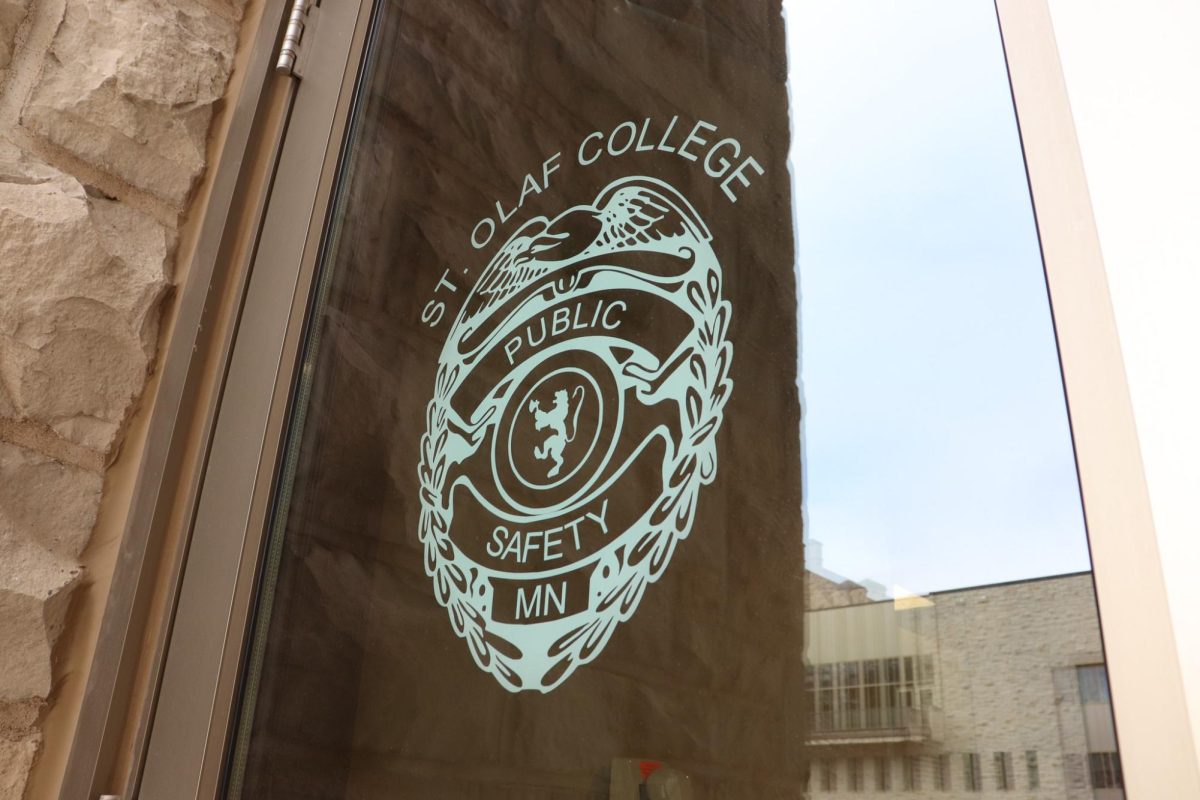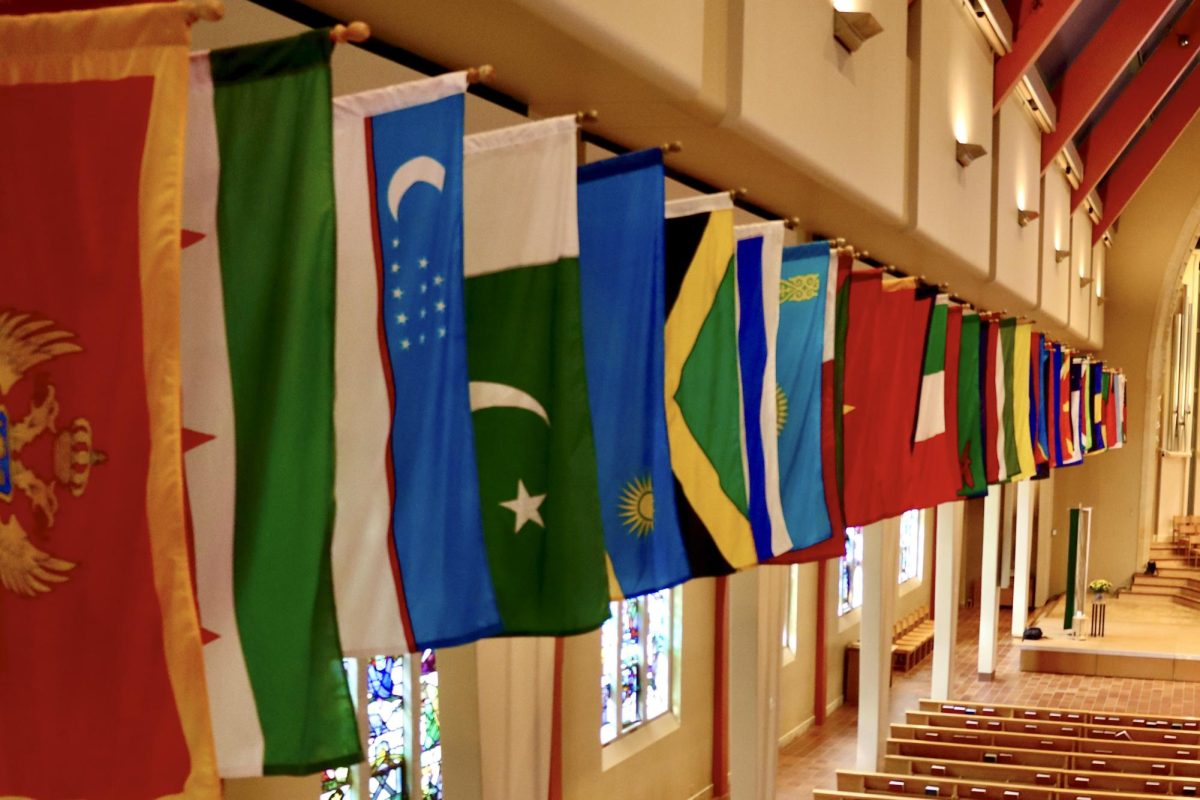One of the political science department’s newest professors is Joshua Anderson. Even though he often sports a St. Olaf T-shirt and other displays of Ole pride, Anderson actually graduated from Carleton College. In fact, fellow St. Olaf professor Adam Berliner attended Carleton at the same time.
Anderson’s path through academia in general, and his relocation across the Cannon River to a professorship at St. Olaf in particular, has been quite a journey. Even before attending Carleton, Anderson knew what he wanted to study.
“I was really interested in politics and justice when I was a teenager,” he said. This interest naturally led him to the political science department.
“I found myself really enjoying the political theory classes because I felt like they were more speaking to the big picture questions about justice, equality and liberty.”
After earning his B.A. from Carleton, Anderson tried to work in politics and campaign to enact change.
“I thought that I wanted to change the world after college so I went and worked in politics for three years,” he said. “I worked for the DFL for six months after college, and all the elections I worked on we lost, so that was an interesting first experience in politics, losing these campaigns that you’re spending 80, 90 hours a week on.”
It wasn’t the electoral defeats that changed the trajectory of his career, however.
“I felt like the people I was working with didn’t care about ideas,” he said. “I got the distinct impression from doing that work that the people who I worked with were interested in winning for its own sake, like politics was a chess game and they enjoyed it for the challenge. I didn’t really feel like they were terribly interested in making anyone’s life better. And so I found myself really frustrated by that.”
Pursuing a new kind of challenge, Anderson decided to enroll in graduate school at the University of Minnesota. The work was unlike anything he had done before.
“It was a baptism by fire, reading 800 or 1,000 pages a week,” he said. “Grad school literally ruined my eyes.”
Always in search of new intellectual challenges, Anderson tried to find a new and interesting topic for his dissertation.
“I felt there was this gap of knowledge on what political scientists were doing in the United States in the 19th century,” he said. Around this time, he received an email detailing how St. Olaf needed a political science professor to teach one or two classes.
“I applied, and I’ve been here ever since,” he said.
The differences between the student bodies at the University of Minnesota and St. Olaf are very clear to Anderson.
“There’s a very consumeristic attitude towards learning at a big school,” he said. “Students expect a teaching product to be produced for them and if they don’t like what they see, they get angry or upset.”
This attitude contrasts with his current students at St. Olaf.
“I really appreciate that students at St. Olaf are learning because they care, and they want to explore ideas,” he said. “That’s the same reason I went to college; because I cared about ideas as such. So I appreciate it when I have others in the classroom who seem to think similarly.”
Anderson noticed other traits that set St. Olaf students apart from those at previous institutions where he has taught.
“You guys have a real seriousness and trust that I appreciate,” he said. “I felt like at the University of Minnesota, I’d give students these books and I’d be like, ‘please read this, I swear to you it’s important,’ and I feel that with St. Olaf students I give them a book and they might say, ‘This is weird, I don’t get this, but I’ll read it anyway because I trust that it will be important and I’ll get it sooner or later.’”
When asked what his plans are for the future, Anderson expressed interest in a career in academia, preferably at St. Olaf.
“I probably enjoy teaching at St. Olaf better than I would enjoy teaching at Carleton; St. Olaf students are very polite” he said. “It was a real shock coming down here and teaching [in a place] where students would hold the door for me and other little things like that.”





